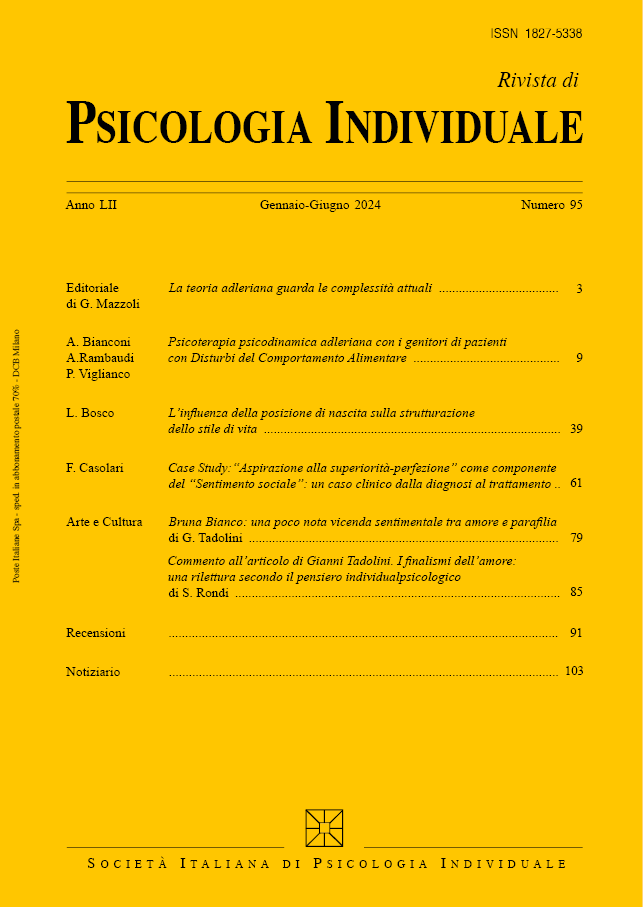Analysis and empathy in A. Adler's psychotherapy
Keywords:
freudian naturalistic analysis, personological and psychological analysis, character, empathy, psychic hermaphroditism, interpretation, ego, lifestyle, psychotherapy, holism, transference, worldview and self-viewAbstract
The author, who is not an Adlerian and does not share the language and concepts of the school, in
1. “Analytical psychotherapy and the problem of the ego,” emphasizes that the Adlerian model of psychotherapeutic intervention, which is “personological and fundamentally psychological,” differs from the Freudian naturalistic model because it considers the person as an indivisible whole, an “ego principle of autonomous intentionality, dialectically antithetical, as a form of integration.” An analysis must therefore necessarily be represented by a dialectical conceptualization that can interpret the antitheses and contradictions of the psychic dynamics of the analyzed person.
2 “Therapeutic and dialectical analysis of personality” will also aim to identify the life project aimed at a goal created by the reflective spontaneity of the ego [a lifestyle built on the subject's personal worldview].
3. In this character analysis, “the problem of transference” reflects the method by which the subject has always dealt with all their experiences [Widerstand].
4. “Analysis and empathy” can thus be framed dialectically in analytical psychotherapy, because the analyst's participation can be authentically all-encompassing and, by not identifying with a particular emotional position of the patient, will remain open to all possible implications and correlations that each feeling develops in relation to other feelings






